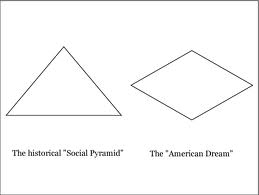mpeirce
Thinks s/he gets paid by the post
Presumably though, the wealth tax would target people who have much greater wealth, perhaps like the estate tax which exempts what, the first couple of million?
I doubt it. Oh sure, at first, but it would cover more and more people over time - much like the income tax has.
And I'm sure that if this ever came to pass, we (us clever humans) would figure out many many work arounds. Of course hiding wealth would hugely distort the economy, but that's not really the point is it.
Frankly I'd much rather see us go in the opposite direction: get rid of the income tax and replace it with a consumption tax (replace, not add in beside the income tax). This would encourage people to save and build wealth. I guess I'm just too old fashioned...

